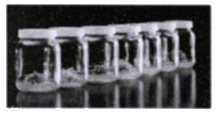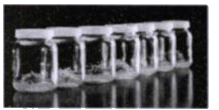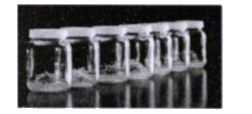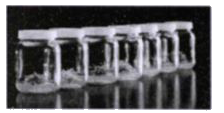Read the following text and answer the following questions on the basis of the same: The rate of increase in the number of bacteria in a certain bacteria culture is proportional to the number present. Given that the number triples in 5 hours.

If N0 is the initial count of bacteria, after 10 hours the count is __________ .
15log3
3logN0
9N0
2N0
The correct Answer is:C
Step by step video, text & image solution for Read the following text and answer the following questions on the basis of the same: The rate of increase in the number of bacteria in a certain bacteria culture is proportional to the number present. Given that the number triples in 5 hours. If N_0 is the initial count of bacteria, after 10 hours the count is __________ . by Maths experts to help you in doubts & scoring excellent marks in Class 12 exams.
Updated on:21/07/2023Similar Questions
The rate of increases of bacteria in a certain culture is proportional to the number present. If it doubles in 5 hr., then in 25 hr., its number would be
View SolutionIn a certain culture of bacteria, the rate of increase is proportional to the number present. If it is found that the number doubles in 4 hours, find the number of times the bacteria are increased in 12 hours.
View Solution
Knowledge Check
∫1Kxdx=_________ .
Alog|x|+CBlog|Kx|+CC1Klog|x|+CD−1Kx2+CRead the following text and answer the following questions on the basis of the same: The rate of increase in the number of bacteria in a certain bacteria culture is proportional to the number present. Given that the number triples in 5 hours.

The general solution is _________ .Alog|N|=Kt+CBlog|Nt|=K+CClog|N|=tDlog|Kt|=N+CRead the following text and answer the following questions on the basis of the same: The rate of increase in the number of bacteria in a certain bacteria culture is proportional to the number present. Given that the number triples in 5 hours.

If 'N' is the number of bacteria, the corresponding differential equation is ____________ .AdNdt=KtBdNdt=KNCdKdt=NDdKdN=t
Read the following text and answer the following questions on the basis of the same: The rate of increase in the number of bacteria in a certain bacteria culture is proportional to the number present. Given that the number triples in 5 hours.

The bacteria becomes 10 times in ___________ hours.
View SolutionThe rate of increase in the number of bacteria in a certain bacteria culture is proportional to the number present. If in 5 hrs the number triples, then in 10 hrs, the number of bacteria present is
View SolutionThe rate of increase in the number of bacterai in a certain becteria culture is propotional to the number present at that time. If is found that the number doubles in 4 hours, then at the end of 12 hours, the number of bacteria are
View SolutionThe rate of increase in the number of bacteriad in a certain bacteria culture is propotional to the number present at that time. After 2 hours there are 600 becteria and after 8 hours the count is 75000, then the initial population is
View SolutionThe rate of increase in the number of bacteria in a certain culture is propotional to the number present at that time. After 2 hours there are 600 bacteria and after 8 hours the count is 75000, then the population will be 200000 after
View Solution

